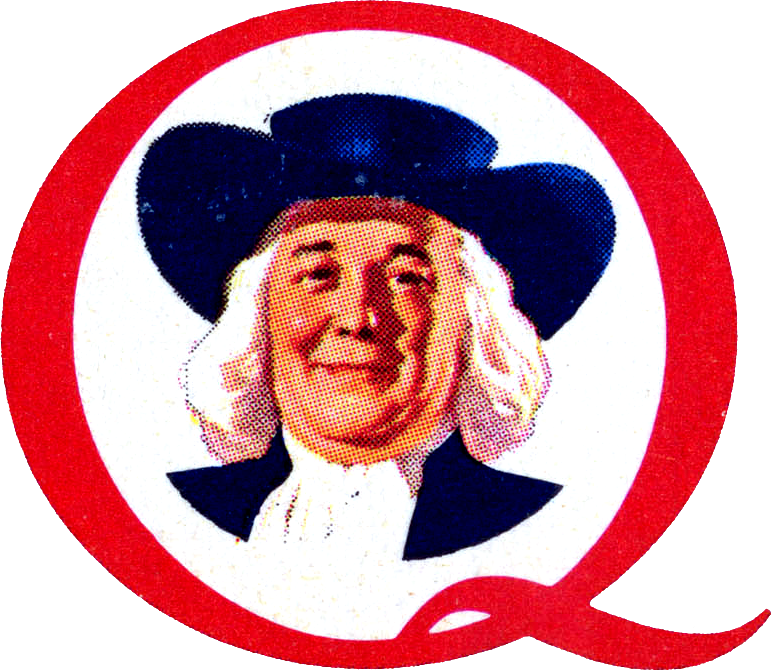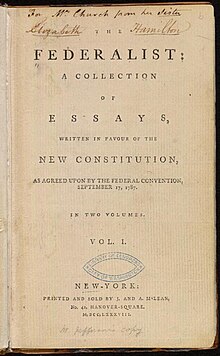Nick Phillipson's mother's family had been Quakers. His mother herself had lapsed. But apparently a spinster aunt of his still practised. Nick remembers going to his aunt's place on set occasions and having to provide his aunt with the "right answers" to her questions. Not participating was not an option; compliance earned him a package of Mentos.


One never knows about such mythical men, of which there are many. Ronald McDonald, Captain Highliner, and so on.
 I imagined Nick as a Quaker, standing in a meeting hall of friends when the spirit moved him. Too much incongruity. Whoever I imagined, it definitely wasn't Nick.
I imagined Nick as a Quaker, standing in a meeting hall of friends when the spirit moved him. Too much incongruity. Whoever I imagined, it definitely wasn't Nick.




There would be no despotic tyrant (like Montesquieu's fabled Turkish despot, featured in his Persian Letters and Spirit of the Laws, both of which were oblique attacks on the King of France) or Lord Protector of the Commonwealth (Cromwell)--no supreme controller layers of subordinate controllers. No, there would just be ambitious office holders feeding their own proclivities and defending their own territories in a Wild West with a minimum of Law and Order.
In the new secular order that the American Founders were unfolding, priests were to be replaced by moralists. Relaxed casuists (Hume's term) would resolve hard cases in ethics. No longer would sinners and reprobates have to testify to the very moment when they had been plucked from the flames. What would matter henceforth was not high flying piety, but "warmth in the cause of virtue". This was a lot to take in.
Nick was certainly opening a "new scene of life" before my very eyes--in some sense I believe I understood David Hume's brush with what he called priestcraft and strange conversion among the Jesuits at La Fleche. Clearly, I had much more to learn. I had not anticipated having a serious engagement with religion as part of my PhD, but there it was.
Philosophy professors often caution their youthful charges not to be too hasty and start "having a go" at the pantheon of gods with their newly acquired sophistry. They are told that before they tear down the house of metaphysics, they must first learn how to build it.
Once again Nick provided a clue: Leslie's Short and Easy Method with the Deists, which was the Irish born divine's attempt to reassert the rights of justification by faith in a hitherto Catholic world that had fragmented into myriad protestantisms, some of which, in turn, were giving way to variations on natural theology, in which belief in prophecy and revelation were rejected in favour of an exploration of the mysteries of human and non-human nature. Spinoza compared God to a watchmaker, whose creation was wound around cogs and gears and sprockets, and whose energy was released by springs. The deists were interested in learning a trade, rather then in living by faith. Leslie sought to reverse this dangerous trend, and Phillipson believed that the struggle against protestant heresies was a key driver of the Enlightenment.
![Books:Religion & Theology, [Charles Leslie]. A Short and Easy Method with the Deists:Wherein the Certainty of the Christian Religion isDemonstrat...](https://dyn1.heritagestatic.com/lf?set=path%5B1%2F3%2F4%2F5%2F0%2F13450689%5D%2Csizedata%5B850x600%5D&call=url%5Bfile%3Aproduct.chain%5D)
For philosophers like Hume, scepticism was a natural curative of fantasy--whether fantasy based in tradition, or in political ideology, or in superstition, or in religious enthusiasm, or in utopian speculation, or in science (which is constantly being updated, and sometimes even overhauled), or in so-called received wisdom. Scepticism was an antidote to the vagaries of opinion--and prevented a reflective mind from setting too much store by false certainties of any kind.
To be continued.

Scotch philosophy and Quaker Oats?
I was not quite sure what Nick was driving at when he told me this story. As a kid growing up in Canada I remember the cheerful, rosy cheeked man with long white hair and a black hat on boxes of Quaker Oats.
One never knows about such mythical men, of which there are many. Ronald McDonald, Captain Highliner, and so on.

A collector of sermons
I decided to practise my "active listening" skills, and asked Nick a few more questions. What had Quakerism to do with the Scottish Enlightenment? I was missing the point. What could enlightenment possibly have to do with religion? Where ya been! And then dropped the bombshell. He was not only fond of antiquarian books; he was also a collector of sermons. And not just any sermons either.A snake in the grass
It turned out Nick loved the sermons of the nonjuring Anglican divine Charles Leslie. Charles Leslie supported the Stuart dynasty, and the return of the Young Pretender Bonnie Prince Charlie in the '15. Leslie had also been critical of a variety of heresies, including Quakerism.
So why was Leslie so important for Nick? Leslie had been critical of deists, who believed in God, but did not support the revelation reported in the Bible. In his Snake in the Grass, Leslie accuses the Quakers of hiding their serpent-like subtlety under a cloak of simplicity. According to Leslie, Quakers, like many another heretics, were puffed up with pride, and fooled themselves into thinking they were pious, when in fact they had set themselves above God's laws and His plans as foretold in prophecy and revelation.

Deists tended to put a great emphasis on the free will of human actors, who did not enact the revelation as if they were puppets on a string, but rather authored their own destiny, bound only by natural laws, to which it was incumbent on them to discover and master and apply liberally to the stuff of human affairs.
The Federalist Papers and relaxed casuists
The American Founders were deists. What mattered to deists was neither requiring blind obedience to a creed (stating his priorities very clearly, Jefferson once said "It neither picks my pocket nor breaks my leg whether my neighbour believes in one god or 10"), no rin some utopian fashion reforming human nature (Hamilton and Madison, following Pascal, observed that we humans are neither beasts nor angels). Instead, a prudent lawgiver must provide an institutional framework (checks and balances) that makes allowances for the overweening appetites of office holders (every one from presidents to postmasters), but, rather than seeking to restrain the venal parts of the human frame, leverages human jealousies to ensure that permanently corrupt and constitutionally corrupt office holders (who not only are vicious in their very natures, but assume offices in order to advance their interests, not to submit them to a yoke) police each other.


There would be no despotic tyrant (like Montesquieu's fabled Turkish despot, featured in his Persian Letters and Spirit of the Laws, both of which were oblique attacks on the King of France) or Lord Protector of the Commonwealth (Cromwell)--no supreme controller layers of subordinate controllers. No, there would just be ambitious office holders feeding their own proclivities and defending their own territories in a Wild West with a minimum of Law and Order.
In the new secular order that the American Founders were unfolding, priests were to be replaced by moralists. Relaxed casuists (Hume's term) would resolve hard cases in ethics. No longer would sinners and reprobates have to testify to the very moment when they had been plucked from the flames. What would matter henceforth was not high flying piety, but "warmth in the cause of virtue". This was a lot to take in.
Nick was certainly opening a "new scene of life" before my very eyes--in some sense I believe I understood David Hume's brush with what he called priestcraft and strange conversion among the Jesuits at La Fleche. Clearly, I had much more to learn. I had not anticipated having a serious engagement with religion as part of my PhD, but there it was.
Philosophy professors often caution their youthful charges not to be too hasty and start "having a go" at the pantheon of gods with their newly acquired sophistry. They are told that before they tear down the house of metaphysics, they must first learn how to build it.
Dispatching the deists
But the Federalist Papers was a product of Scottish educated colonials at the end of the 18th Century. What about Charles Leslie and the beginning of the century?Once again Nick provided a clue: Leslie's Short and Easy Method with the Deists, which was the Irish born divine's attempt to reassert the rights of justification by faith in a hitherto Catholic world that had fragmented into myriad protestantisms, some of which, in turn, were giving way to variations on natural theology, in which belief in prophecy and revelation were rejected in favour of an exploration of the mysteries of human and non-human nature. Spinoza compared God to a watchmaker, whose creation was wound around cogs and gears and sprockets, and whose energy was released by springs. The deists were interested in learning a trade, rather then in living by faith. Leslie sought to reverse this dangerous trend, and Phillipson believed that the struggle against protestant heresies was a key driver of the Enlightenment.
The rise of philosophical scepticism
The philosophical scepticism of thinkers like Hume--raised as he was on the New Westminster Confession of Faith and the Longer and Shorter Catechisms--did not arise de novo. Rather, it was a response to a variety of challenges to faith.For philosophers like Hume, scepticism was a natural curative of fantasy--whether fantasy based in tradition, or in political ideology, or in superstition, or in religious enthusiasm, or in utopian speculation, or in science (which is constantly being updated, and sometimes even overhauled), or in so-called received wisdom. Scepticism was an antidote to the vagaries of opinion--and prevented a reflective mind from setting too much store by false certainties of any kind.
To be continued.

Comments
Post a Comment